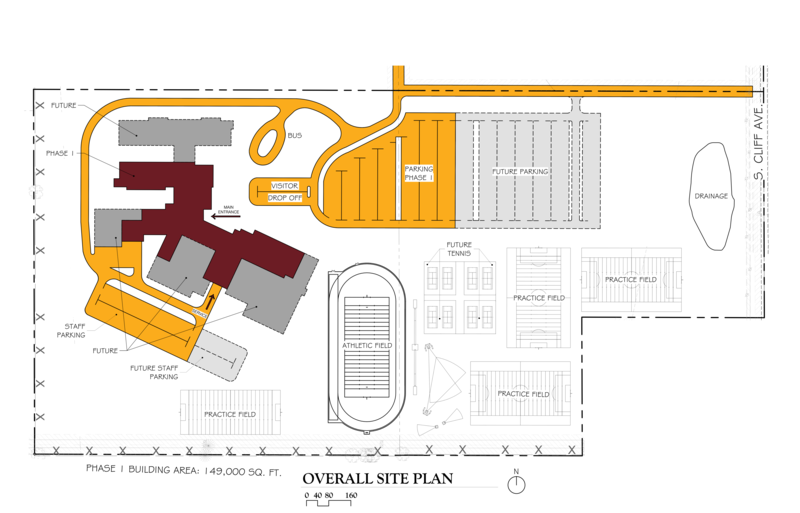This is a paid piece from the Sioux Metro Growth Alliance
Simplified: Houses go where schools are, and businesses go where the houses are. As Harrisburg considers adding two new school buildings through a $60 million bond, here's a look at the economic development implications of spending on schools.
Why it matters:
- Harrisburg School District voters will decide June 1 on whether to pass a $60 million bond to fund construction of a new middle school and a new freshman academy, which would eventually build out into a second high school.
- Both new buildings would sit in already-growing areas of Sioux Falls, along where Highway 100 will go in the future.
- Superintendent Tim Graf said the new buildings, if approved, would not only benefit students – who are quickly outgrowing existing facilities – but would also benefit the community as more homes and businesses are drawn to the area surrounding the schools.
"We think that's in a great position for future growth," Graf said.
Tell me more about the proposed buildings
Both are located within Sioux Falls city limits, which is where the majority of students in the district reside.
Harrisburg is proposing adding a third middle school, which would be located near 69th Street and Southeastern Avenue in Sioux Falls. It'll be modeled after the existing North Middle School.
The freshman academy, and site of the eventual second high school, would be at the southwest corner of 85th Street and Cliff Avenue on a nearly 80-acre plot of land.
Why talk about schools from an economic development standpoint?
Because, frankly, you can't separate the two.
Schools and residential development go hand-in-hand, and, then businesses follow.
Harrisburg's school enrollment has more than quintupled in the last 20 years, and in another decade, they're projecting 3,000 more students, Graf said.
"These new school buildings will help prepare for future growth and alleviate pressure on existing facilities," said Jesse Fonkert, executive director for the Sioux Metro Growth Alliance. "They would also bring construction jobs, future housing developments and commercial developments."
What does all of this mean for taxpayers?
The bond wouldn't change the tax levy, Graf said, which means property owners won't see taxes go up or down.
That's largely because of consistent growth in the school district, providing a broader tax base, i.e. more money available to schools.
What happens next?
The vote on the $60 million bond will take place June 1 in the Harrisburg school district. Voters can find more details on how and where to vote here.
If it passes, construction is set to begin in September with both buildings completed in time for the 2023-24 academic year.
If it fails, the district will need to find a plan B to address overcrowding, which might mean portable classrooms, Graf said.


